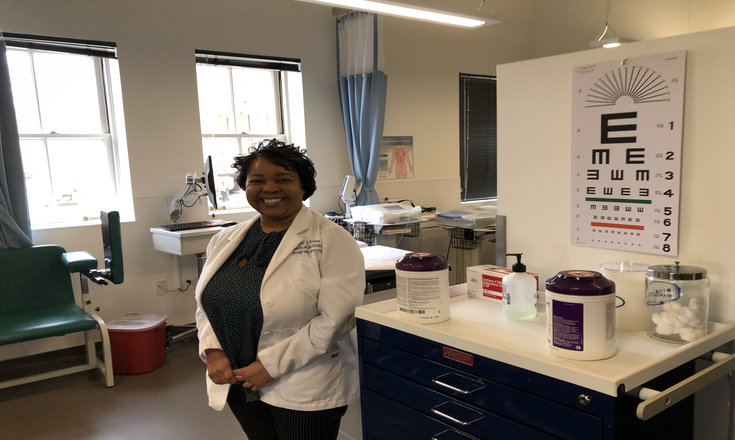Seattle Central has a legacy of community outreach and programs that change lives. The latest installment in that glowing history is the medical assistant apprenticeship program at the HEC, or the Pacific Medical Center in Beacon Hill. According to the SCC News Center, the program “prepares students to support medical doctors and staff in patient care, providing class instruction, mentoring, and experience in the field.” With its first cohort, the program is having unprecedented success, with a retention rate of 97%, and points to the efficacy of apprenticeship-style teaching and work-study for a diverse community of students.
Toya Moore is the director of the program, and has almost thirty years of experience in the field as a medical assistant in trauma units and ICUs alike. Moore began her career in 1994, and firmly believes that “medical assistants are the heartbeat of medicine.” In her own words, “traditional is what I’m not.” She was hired in late 2018, first at Seattle Vocational Institute(SVI) and then at SCC. The program is being housed in the HEC for its first six-month stunt, with three SVI veteran instructors–two part-time and one full-time.
This Medical Assistant program is special in more ways than one. For starters, it’s never really been done before on this scale. According to Moore, a whole new curriculum and accreditation was planned and approved, and the staff is “still doing a lot of homework” to improve the program. In it’s infancy, the apprenticeship faced some rocky shores. Moore had a difficult time convincing Seattle Colleges that the program would be successful, since an apprenticeship-style education is non-traditional in medicine. “Our students are non-traditional, so we had to figure out how to adapt to fit their needs,” says Moore. This difficulty manifested in funding primarily, but the staff was able to make the most of it. “We were able to receive enough money to floor the patient area of the lab, but you see the carpet everywhere else? What? Come on now.”
The actual training that takes place in an MA apprenticeship is similar to that of an EMT, as MA’s are generally the first people one sees when entering the ER or a clinic. Students attend apprenticeship classes on Mondays, and work in the clinic the rest of the week with regular hours and pay. The HEC is also a Certified Medical Assistant testing site, so students can take their national testing in a convenient space. Students get the experience of working in a clinic, and help with confidence and transitions in the new job. Upon completion of a year of instruction and two thousand hours on the job, there are already further apprenticeships and job opportunities set up around the city. This first cohort has in fact already been hired by Kaiser Permanente.
With the twenty people in this first cohort, Moore stressed empowerment more than anything. “We have to help [students] transition out of learnt helplessness and get them into the game,” she says. The diversity in the cohort is such that “you won’t see three of the same kind of people.” The pre-requisites for the program are as bare-bones as it gets, and Moore believes this is integral to success they’ve had, with only entry level math and english classes needed to be passed at SCC before enrollment. “If they can write a sentence, we help them.” A MA’s general duties include making sure rooms are ready, preparing patience and vital sign checks. An average day at the clinic starts off at 8:30 with half-lecture and half-clinical instructions, with competency check-offs for each topic, such as endocrinology and fluid labs. Moore says the clinicals are very hands-on, and that everyone gets involved in order to get comfortable with their equipment. “Just last week we learned how to stick ourselves with needles, and it took a while but they got comfortable,” Moore says. In the clinic, the assistant sets the pace. Moore says the goal is someone being happy to see your name on the chart. “Be efficient, empathetic and a team player.”
The most prominent social effect of the program seems to be its positive influence and place in many of the apprentices’ lives. Moore designed the program to focus on community and diversity, and has a network of medical professionals who are able to tutor her students in several different languages to help them along in their coursework. “To a community with so many different ethnicities, this program and its entry level requirements are so important.” She relays a story of a Vietnamese student who was concerned about her English capabilities. She was accepted into the program and Moore was delighted and moved to find her entire family outside the registration office cheering her on.
In the future, Moore hopes that the apprenticeship model will be more widely accepted and used in education. “I hope it’s adopted across many genres of work, because with this model you are working.” In Moore’s eyes, this program is an avenue for people to realize their worth, and nothing could be more important.







Be First to Comment